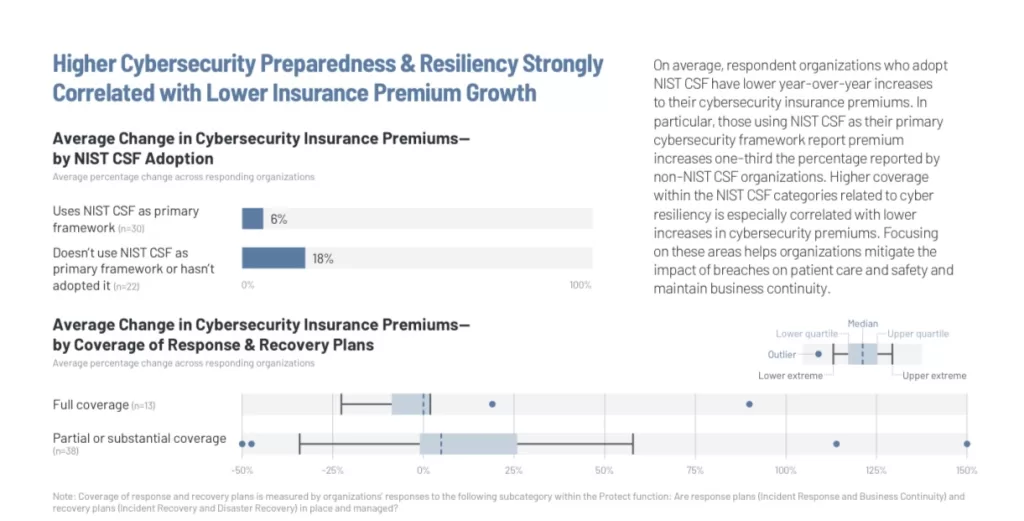Censinet, alongside KLAS Research and other notable healthcare and cybersecurity organizations, unveiled the 2024 Healthcare Cybersecurity Benchmarking Study. This research, which saw participation from over 120 organizations, underscores a collective commitment to bolstering cybersecurity defenses within the healthcare sector. A standout revelation from the study highlights a significant financial incentive: organizations aligning with the NIST Cybersecurity Framework (CSF) reported a one-third reduction in the growth of cyber insurance premiums, marking a critical cost-saving measure in an era of escalating cyber threats and costs.

The Benchmarking Study, now in its second year, serves as a crucial industry initiative to establish comprehensive, objective benchmarks across the NIST CSF, 405(d) Health Industry Cybersecurity Practices (HICP), and key organizational metrics. This collaborative effort aims to enhance cyber maturity and resiliency within the healthcare sector. This mission is more urgent in light of recent record-breaking numbers of third-party breaches.
Despite advancements, the study reveals that the healthcare sector remains better poised for reactive rather than proactive measures against cyber threats. Supply Chain Risk Management, crucial in securing the healthcare ecosystem against third-party breaches, continues to lag, underscoring the need for heightened vigilance and improvement.

Key stakeholders, including the American Hospital Association and Health-ISAC, have endorsed the study’s findings, emphasizing the critical role of such collaborative research in strengthening the sector’s defense mechanisms against cyberattacks. These attacks not only compromise sensitive data but directly threaten patient safety, making the findings of the 2024 Benchmarking Study a valuable resource in the ongoing battle for cybersecurity in healthcare.
“Strengthen Cyber Resiliency”
John Riggi, National Advisor for Cybersecurity and Risk at the American Hospital Association, said, “When criminal and nation state-supported ransomware attacks target hospitals, health systems, and our mission-critical third parties, patient safety is directly placed in their crosshairs. U.S. hospitals and health systems need urgent support from initiatives like the Benchmarking Study to swiftly strengthen cyber resiliency and protect patients from these malicious attacks.”
The insights from the study will help healthcare organizations make informed decisions about cyber insurance and security investments and strategies. Enhanced features in the Censinet RiskOps platform, available to participating organizations, offer advanced peer comparisons and actionable guidance, further empowering the healthcare sector to elevate its cybersecurity posture and safeguard patient care against the ever-evolving cyber threat landscape.
That landscape is stark. US healthcare has become a prime target for cyberattacks in recent years. The number of attacks has exploded, exposing the sensitive data of millions of patients. Ransomware and hacking are the major threats, disrupting operations and risking patient care. Healthcare organizations face financial losses and reputational damage while struggling to recover from these attacks. While efforts are underway to improve cybersecurity, the sector still struggles to be proactive, leaving it vulnerable to future attacks.
Other News: Cybersecurity Insurance Market Soars as Digital Risks Surge – Report(Opens in a new browser tab)